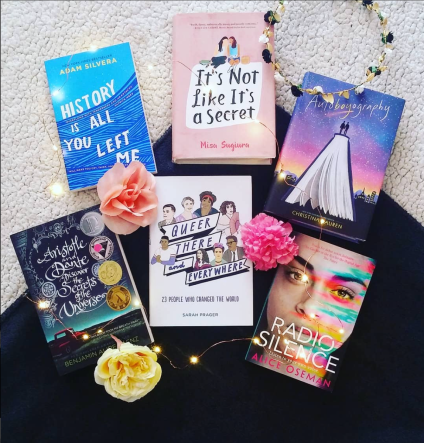In March 2017, when advance copy reviews of Laurie Forest’s The Black Witch came out labelling the novel as ‘racist,’ ‘offensive, and written with no marginalised people in mind,’ the subsequent online conversation that resulted took the YA community by storm.
Reviewers, bloggers, authors and readers gathered on Twitter and Goodreads to discuss the book and unearthed a larger issue at play: the lack of diversity … at a publishing level.
The YA community banded together and sent a powerful message to publishing companies everywhere: it is no longer enough to feature diverse characters within novels; we need to focus on the diversity of authors behind the novels as well.
But why is that important? Shouldn’t it be enough that novels feature diverse characters, so young adults and children from minorities reading these books see a reflection of themselves? Well, actually, it’s incredibly important.
In 2014, the Cooperative Children’s Book Center (CCBC) examined 3500 multicultural novels and discovered alarming results:

Of the 179 novels about African/African Americans, only 69 of these books were written by Black authors/creators. Of the 36 books about American Indians, 15 of these were written by Native Americans.
Of the 112 books about Asian Pacific/Asian Americans, 48 of these were written by Asian authors. And of the 66 books about Latinx people, 36 of these were written by Latinx authors.
As shown, there is a very long history of authors from majority groups – white, straight, cisgender – writing about the experiences of minority/diverse groups. Essentially, there’s nothing wrong with that … unless the portrayals of culture and sexuality are written incorrectly.
Unfortunately, YA fiction has a bad rep when it comes to this, because so often majority authors tend to rely on negative stereotypes and tropes.
Look at The Black Witch as an example: according to many reviewers, the novel, written by a majority author, portrays race and culture in a harmful manner, leading many reviewers to blackball the novel before it was even published. Read a few reviews here, here, here, here and here.
The Black Witch is not even a lone case: Bestselling author Maggie Stiefvater has often been accused of purposely using harmful Asian stereotypes in her The Raven Cycle series, while J.K. Rowling was called out for misrepresenting Native American culture in her four-part story ‘A History of Magical America.
To make matters worse, marginalised authors are often pushed aside, or even outright rejected, to make room for majority group authors – and then these same authors are praised for ‘writing diversely.’
Click on the tweet to read the full thread.
In the wake of The Black Witch controversy, author Justina Ireland explained that the YA publishing sector’s biggest problem is its ‘systemic exclusion of the stories of marginalized groups as told by marginalized creators [sic].’
To push back against such a problematic publishing system, marginalised authors banded together on Twitter to revive the #OwnVoices hashtag, first established by Corrine Dyuvis, which has since developed as an unofficial category of YA.
A book labelled as #OwnVoices means that it is about marginalised people written by authors from the same marginalisation. This is incredibly important as #OwnVoices authors are writing about issues, such as race and sexuality, with real life experience.
The authors share an identity with their characters that is apparent in the respectful way the author portrays that identity.
So how can the YA publishing industry fix this lack of diverse writers/creators? It’s very simple:
PRIORITISE #OWNVOICES AUTHORS.
While it feels as though the publishing industry is not listening to us – especially when books like The Black Witch are published – the industry is changing in a positive way, albeit slowly.
#OwnVoices authors like Sandhya Menon, S. Jae-Jones, Julie C. Dao, Angie Thomas, Ibi Zoboi, Cale Dietrich and Lilliam Rivera had bestselling debut novels published this year, to widespread praise.
We can only hope that the industry continues to listen to authors, reviewers, bloggers and readers, and makes a positive step in the right direction.

For more information and further reading on this issue, I highly suggested checking out the following articles:
‘Our Own Voices, or Why Not All Diverse Stories Are Created Equal’ by Susie Rodarme.
‘How YA Twitter is Trying to Dismantle White Supremacy One Book at a Time’ by Sona Charaipotra and Zóraida Cordova.
‘Diversity is Not Enough: Race, Power and Publishing’ by Daniel Jose Older.
‘All I Think About You is White, White, White Thoughts’ by Sarah Nicole Lemon.
If you want to read more diversely and support marginalised authors, read my list of recommendations here.